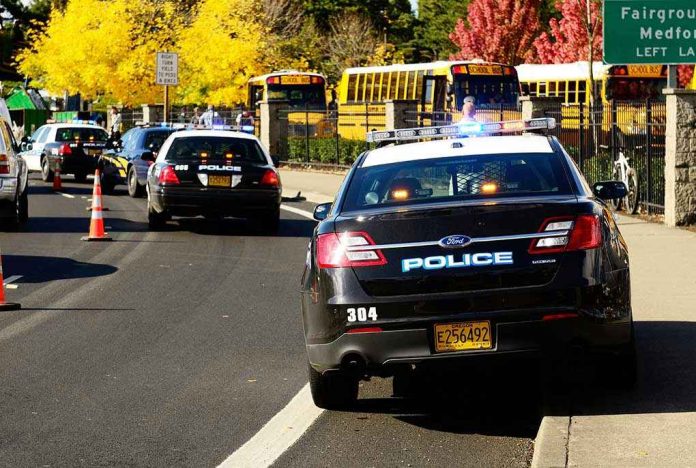
A 10-year-old driving himself home from school while his father is arrested on unrelated charges exposes alarming gaps in parental responsibility and public safety, raising urgent questions about family authority and accountability in today’s America.
Story Snapshot
- A 10-year-old boy in Tennessee drove himself home from school after a dispute with his mother.
- Police initially treated the incident as a possible child abduction or car theft.
- The boy was found unharmed with his father, who was then arrested on unrelated outstanding warrants.
- No charges were filed against the child due to his age, highlighting concerns about supervision and law enforcement priorities.
Rare Incident Reveals Gaps in Parental Oversight and Community Safety
In Mt. Juliet, Tennessee, a 10-year-old boy became the center of a local law enforcement response after driving himself home from W.A. Wright Elementary School. The incident began when the mother went inside the school to drop off paperwork, leaving her son in the car.
After a disagreement, the boy moved to the driver’s seat and drove the car home, a distance of about one mile. The mother, returning to find both the vehicle and her child missing, immediately reported what she believed to be a stolen car with a child inside. Authorities responded swiftly, treating the situation with the seriousness such confusion demands in today’s climate of heightened concern for child safety and abductions.
Police located the vehicle at the family’s home, finding the child unharmed with his father present. During their investigation, the father was arrested on outstanding warrants for theft and wire fraud—charges unrelated to the day’s events.
No criminal charges were filed against the boy, as authorities determined he was too young to be held legally responsible. This resolution underscores the challenges law enforcement faces when balancing the need for immediate action with the realities of family disputes and the limitations of current laws regarding juvenile responsibility.
The fact that the incident was initially believed to be a possible abduction or theft reflects the atmosphere of uncertainty created by recent years of lax discipline and blurred lines of authority in many American communities.
Legal Age Limits, Parental Responsibility, and School Safety in Focus
Tennessee law, like most states, prohibits driving under the age of 16 and generally discourages leaving children under 12 unattended in vehicles due to safety risks. Despite these clear legal standards, the Mt. Juliet event exposed how quickly a lapse in supervision can escalate.
In this case, the mother’s brief absence and the child’s access to the vehicle resulted in a situation that required police intervention and set off a chain reaction affecting the entire family. The school and law enforcement acted according to established protocols, but the event highlights how easily public safety can be jeopardized when parents or guardians are distracted, even momentarily.
The father’s arrest—unrelated but concurrent—further complicated the picture, drawing attention to ongoing issues of parental accountability and the potential impact of adult legal troubles on children’s welfare.
Similar incidents, though rare, have occurred nationally and often result in calls for tighter supervision laws and enhanced protocols at schools. Experts in child safety consistently warn against leaving young children unattended in vehicles, noting the risk of impulsive decisions made in moments of emotional distress, as seen here.
Law enforcement officials emphasize the importance of rapid response in potential abduction scenarios but face limitations when minors are involved, especially when existing laws prevent prosecution due to age. These challenges are symptomatic of a broader cultural shift, where personal responsibility and traditional family authority are increasingly undermined by both social trends and inconsistent enforcement of rules.
Broader Implications: Family Authority, Legal Limits, and Community Trust
This episode has immediate and longer-term consequences for the family involved, the local school community, and the broader public. In the short term, it has sparked concern over child safety and the effectiveness of school drop-off procedures.
In the long term, it may prompt reviews of parental supervision guidelines and school security policies, as well as renewed debate about how best to reinforce family authority and personal responsibility—foundational principles often sidelined by bureaucratic overreach or cultural permissiveness.
The fact that the father’s legal issues surfaced only when police arrived in response to his son’s actions serves as a reminder that parental conduct and household stability are critical to community well-being.
For conservatives committed to restoring order, protecting children, and defending the rights of parents to raise responsible citizens, this story is a cautionary tale about the consequences of eroding family values and the necessity of strong, common-sense standards in both homes and public institutions.





